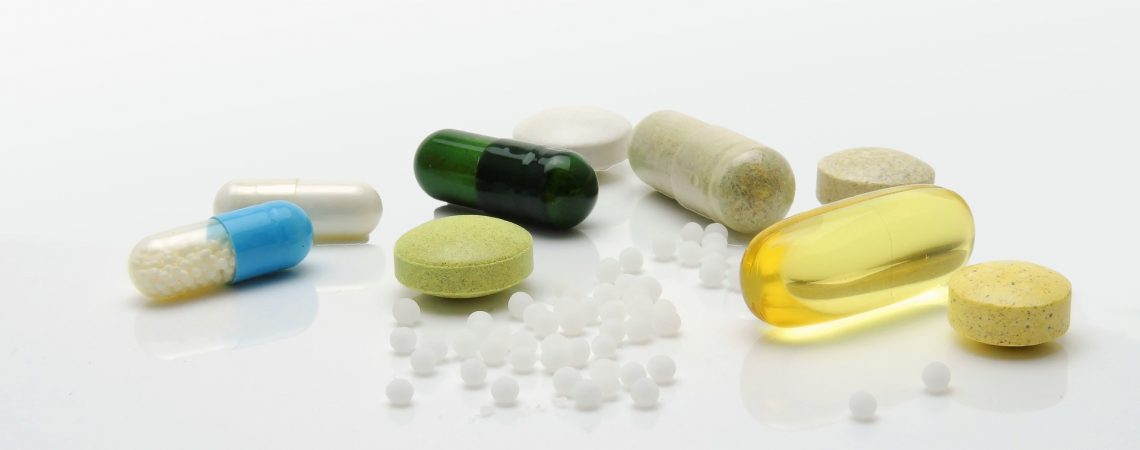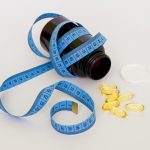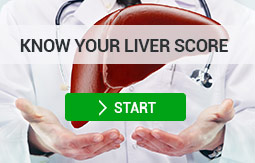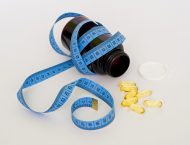Dietary supplements, such as vitamins and minerals, are often associated with a healthy lifestyle, including improving liver health and preventing liver diseases. However, taking them may not have the positive results you think. Read our article to find out what supplements are, why Americans take them, if supplements are helpful or harmful for your body, including your liver, and the safest and most effective way to get your nutrients.
What’s in this article?
- What Are Dietary Supplements?
- Why Do Americans Take Supplements?
- Are They Helpful or Harmful?
- How to Get Your Nutrients
What Are Dietary Supplements?
Dietary supplements include: vitamins (essential nutrients like B vitamins, vitamin C, vitamin K, etc.), minerals (essential nutrients like calcium, iron, magnesium, etc.), botanicals (a plant or part of a plant valued for its medicinal properties, including herbs like garlic and ginkgo), amino acids (the building blocks for protein like BCAA and L-glutamine), enzymes (proteins responsible for food digestion like bromelain and pepsin), probiotics (live bacteria and yeasts like lactic acid bacteria), fish oils (like omega-3), and more. Supplements come in various forms, such as tablets, capsules, powders, drinks and energy bars.
Why Do Americans Take Supplements?
According to a survey completed by the Council for Responsible Nutrition (CRN), 68% of Americans take dietary supplements ─ and spend a lot of money doing so. An article published in CNN Health states that in 2013, Americans spent approximately $35 billion on supplements.
The standard American diet, high in animal products and processed foods, does not leave much room for getting proper nutrients. In terms of the Dietary Quality Index (DQI), which reflects the percentage of calories people consume from unprocessed plant foods on a scale of 0 to 100, the U.S. ranks 11 out of 100. Americans have begun to recognize their poor eating habits and have started taking supplements to ‘compensate.’ Different people have different reasons for wanting to take supplements, from leading a healthier lifestyle to losing weight to preventing liver diseases. However, taking supplements does not compensate for poor eating habits, and even taking supplements with a healthy balanced diet may not have the result you think it does.
Are They Helpful or Harmful?
Contrary to popular belief, certain supplements harm, not help your body. For example: the herb milk thistle is said to detox the liver, prevent damage to liver cells, repair liver cells that are already damaged, and reduce liver inflammation, which can lead to liver diseases, like cirrhosis. However, these studies and most studies on other supplements were observational and uncontrolled. This means researchers observed what happened to a group of people who took the supplement, but they did not observe a group of people who did not take the supplement. Perhaps the health of those who did not take the supplement would have improved, but there is no way of knowing because it was not tested. Therefore, it is not clear if the supplement alone resulted in the positive outcome, or if other factors contributed.
In addition, supplements do not undergo a process of approval like drugs do from the Food and Drug Administration (FDA) when being marketed. The packaging does not have warnings that the supplements have not been approved, and you do not always know all the ingredients. Many supplements contain active ingredients, which can cause negative side effects. The FDA defines an active ingredient as an ingredient that influences a disease or affects your body’s structure and functions.
Manufactures now add some ingredients in supplements to food like cereal. If you receive nutrients from both food and supplements, it is possible you receive too much of certain nutrients. Doses too high can interfere with nutrient absorption and cause negative side effects. For example: getting too much vitamin A can cause liver problems. The liver processes everything we eat and drink, including supplements. Other supplements can also damage your liver, preventing it from functioning at its best, which can lead to serious health conditions. While not all supplements have consequences, many do, and it is important to speak with your physician before you take any.
How to Get Your Nutrients
The safest and most effective way to get nutrients is from food, not supplements. Avoid foods high in trans and saturated fats, refined sugar and salt, commit to eating a balanced diet, consume a variety of healthy foods so you get a range of nutrients, check food labels when grocery shopping, prepare and cook recipes at home so you know the ingredients, when you are eating out and you’re unsure about the nutritional content of a meal, ask the restaurant manager, and drink enough water, which will help transport the nutrients inside your body.
Find out more about which vitamins and minerals are good for your liver as recommended by Dr. Tarek Hassanein, M.D.
References
www.liverdirectory.com
health.harvard.edu
ods.od.nih.gov
edition.cnn.com
nutritionfacts.org
ncbi.nlm.nih.gov

 (442) 244-5115
(442) 244-5115













